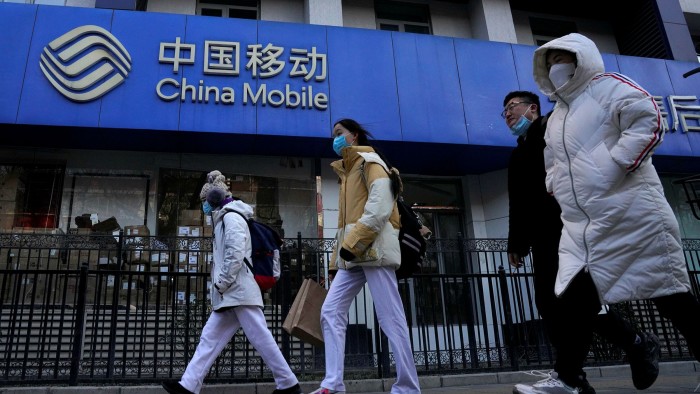Why Trump’s attempt to delist China from US will backfire

Roula Khalaf, Editor of the FT, selects her favourite stories in this weekly newsletter.
The writer is the Dane professor at Harvard Law School
The China delistings have begun. This week, the New York Stock Exchange expelled three Chinese telecom companies to implement President Donald Trump’s November order that bars Americans from buying shares in “communist Chinese military companies”.
Others might also be booted. Separately, the Holding Foreign Companies Accountable Act — signed into law by Mr Trump in December — will delist all China-based companies in three years if China does not co-operate with audit-oversight inspections.
Such moves grab headlines and allow politicians to express pique at China. Hence their appeal. But they are poor policy tools. Their main effect is to enrich Chinese insiders and investors at Americans’ expense. Here is why.
Mr Trump’s order aims to slow the modernisation of China’s armed forces by depriving military-linked companies of US capital. But it is risible to think these companies need US equity investment. They have substantial assets and revenues, financial backing by China, and access to large pools of Asian capital.
Consider the three telecom companies — China Mobile, China Telecom, and China Unicom. Their assets total about $400bn, with annual revenues adding up to around $200bn. China owns about 70 per cent of each. They went public with dual listings in Hong Kong and New York around 2000, raising most of the money in Asia. If they ever need to raise equity capital again, non-US investors in Hong Kong can easily supply it.
The idea that barring purchases of these telecom companies’ stock will affect China’s military is laughable, but their US investors are not laughing. The purchase bans and delistings have temporarily depressed prices as American stockholders run for the exits. Hong Kong and other foreign traders are buying up these shares on the cheap. American investors lose; China’s investors win — and its military continues to grow unimpeded.
The audit-oversight act’s goal is to force China to allow the US accounting regulator, the Public Company Accounting Oversight Board, to inspect audits of China-based US-traded companies. China bars such inspections, claiming they violate state-secrecy laws. The act requires a ban on trading in the shares of any company that goes three consecutive years without a PCAOB inspection of their audits.
I hope the act succeeds. Periodic PCAOB inspections would make it somewhat harder for Chinese insiders to engage in fraud, by checking the work of local auditors. But the likely benefits are exaggerated, as American investors still face risks. For example, unscrupulous China-based insiders who steal assets are largely legally unreachable from America.
But I’m afraid China won’t blink. It objects to foreigners probing domestic commercial transactions. Moreover, China might see some benefit in US delistings of its large overseas-traded tech companies. Beijing has unsuccessfully tried to lure these to list on the mainland. China can now force all these companies to exit New York simply by continuing to bar PCAOB access.
If China does not flinch, the ensuing delistings will harm American investors. Large enterprises are likely to give US investors shares tradable in Hong Kong. Investors who receive these shares will bear the costs of overseas stock ownership and lose any protection provided by US securities law. Those who sell their shares will probably exit at a temporarily depressed price.
Meanwhile, smaller Chinese companies will use the impending delisting to go private at rock-bottom prices. Over the past decade, controlling shareholders of dozens of China-based US-traded firms have arranged lowball “take private” transactions, often later relisting them in Hong Kong or on the mainland at much higher valuations. While cheap take-privates can happen now, the act will make things worse.
Going forward, Trump’s no-buy order should be applied only when it actually stands a chance of affecting China’s military capabilities — which may well be never. And as for audit inspections, America could ban new listings of China-based companies as long as China blocks the PCAOB. Any currently listed companies could remain, but they and their insiders could be barred from selling additional equity to American investors. American investors could continue to trade shares. But no new money would flow to China, where it could be diverted.
This more nuanced approach does not send as strong a message to China, making it less politically attractive. But it is likely to better advance US interests, which are currently being sacrificed for anti-China grandstanding.
Letter in response to this article:
Anti-Beijing rhetoric hurts American investors / From Tony SK Li, Mid-Levels, Hong Kong
Comments